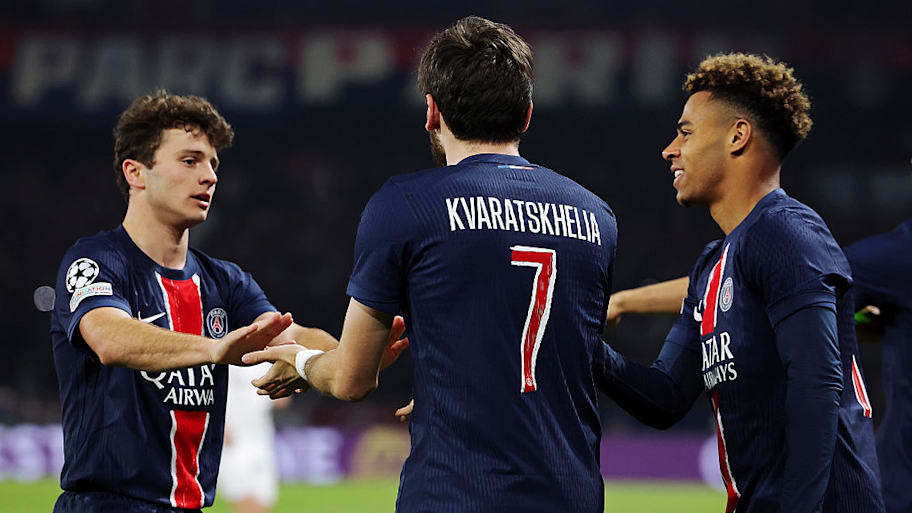The busiest Ballon d’Or ceremony in history concluded with Ousmane Dembélé fulfilling the potential that, for so long, had escaped his grasp.
Dembélé’s journey should serve as great inspiration, with the former wunderkind proving that development most certainly isn’t linear. He arrived at Barcelona as a 20-year-old sensation with the grandest of expectations, but departed in his prime having failed miserably to justify Barça’s expensive gamble.
The Frenchman embarked on the finest season of his career at 28, taking on a new role in Paris Saint-Germain’s frontline that functioned as one of the decisive factors in their maiden Champions League success. PSG were outstanding as a collective, but Dembélé was doubtless their main man.
Arguments for an alternative winner were inevitable in the aftermath, but the real crimes committed by voters this year regarded the placements of several nominees lower down the pecking order.
Here are five of the biggest surprises from the men’s 2025 Ballon d’Or.
Michael Olise—30th
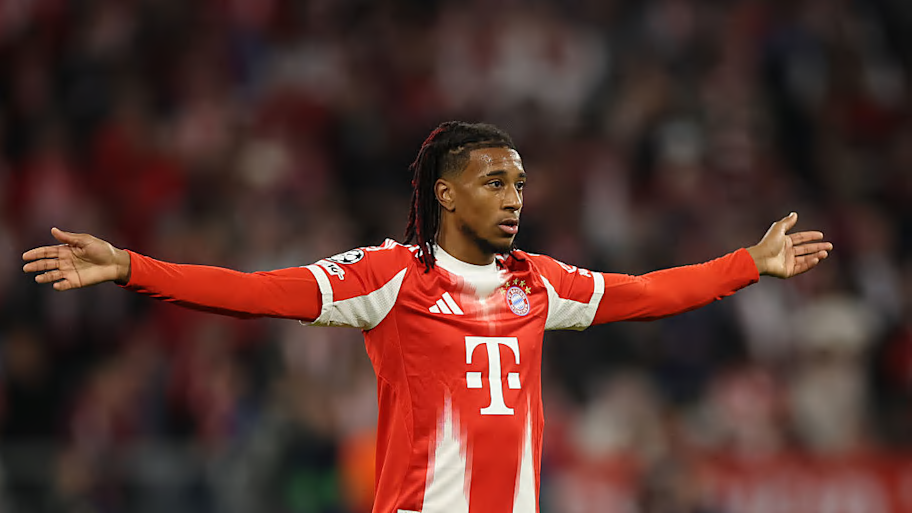
34 combined goal contributions in the Bundesliga and Champions League meant Olise had the statistics to complement a play style that should appease Ballon d’Or voters.
The Frenchman wasn’t a serious contender for this year’s award, but finishing 30th was just outright wrong. Olise played a leading role during his debut season for a Bayern Munich side that quickly returned to the summit of the German top flight, and the elegant wide man has emerged as a star figure for the French national team over the past 12 months, too.
Olise certainly wasn’t deserving of collecting the wooden spoon on Monday night.
Virgil van Dijk—28th
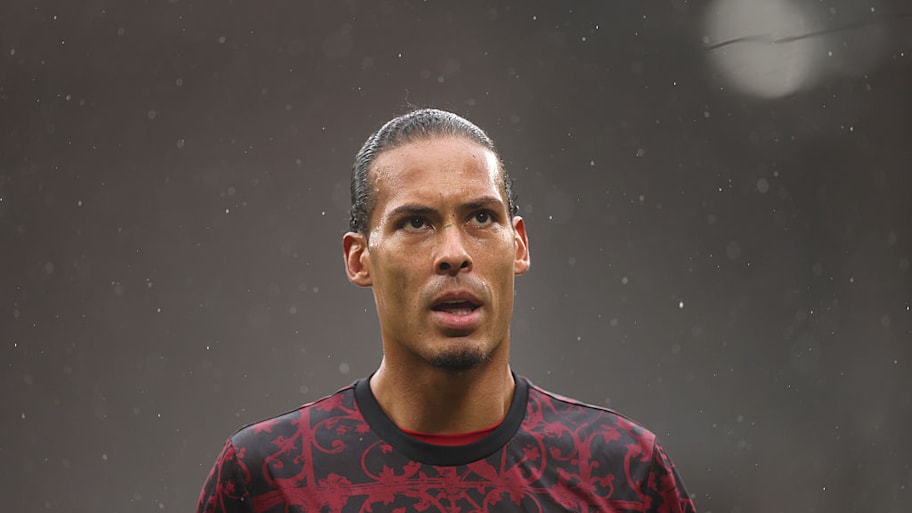
Some would argue that Van Dijk should have become the first defender since Fabio Cannavaro to win the Ballon d’Or in 2019, when the Dutchman was performing at a level few have ever seen from a centre back.
Van Dijk was ultimately pipped to the award by Lionel Messi, and many thought he was hard done by again in 2025.
The dominant Dutch defender endured a bit of a lull after recovering from a devastating knee injury, but he was back to his absolute best last season, helping Liverpool claim their second Premier League title. Van Dijk missed just one game as the Reds boasted the second-best defensive record in Europe’s strongest division.
He was the only centre back shortlisted, but were there really 27 players who performed better than Liverpool’s man mountain last season?
João Neves—19th
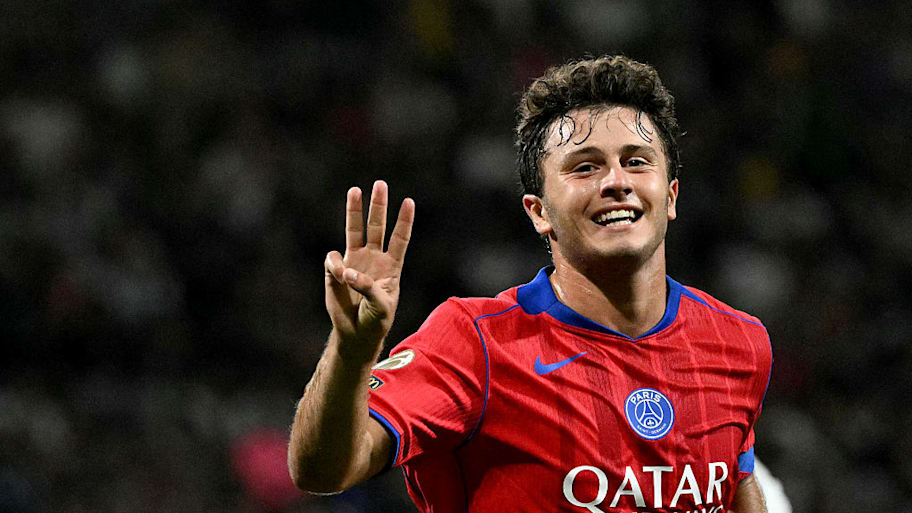
Vitinha was absolutely immense last season, and deserving of his lofty ranking, but why were his two partners in crime ranked so low? Fabián Ruiz in 24th felt harsh, as did Neves in 19th.
While Fabián was the sultry glue who scored in the Champions League semifinal against Arsenal with a wicked strike, Neves was the do-it-all operator in PSG’s engine room.
Luis Enrique’s side risked exiting the competition as early as the league phase, requiring a victory over Manchester City in Paris on the penultimate matchday to keep their hopes alive. The smallest man on the pitch, Neves, headed home the go-ahead goal to complete PSG’s rapid turnaround, having found themselves 2–0 down at the start of the second half. For what Neves lacks in stature, he more than makes up for in ability.
The Portuguese midfielder possesses a majestic combination of grit and technique, and was just as important to PSG’s success as Vitinha, who finished 16 places higher.
Khvicha Kvaratskhelia—12th
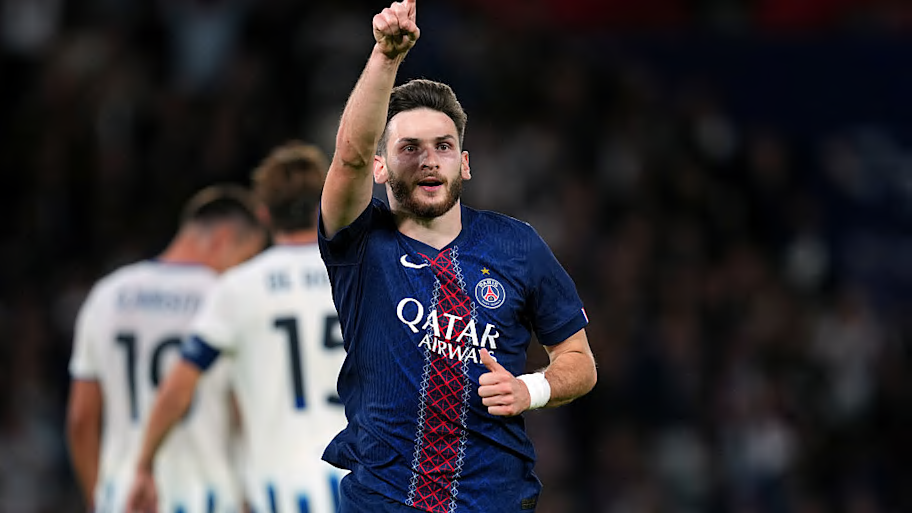
There were multiple factors at play in PSG’s mid-season turnaround. After struggling in the league phase, they blitzed past Brest and bypassed three English opponents on their way to the Champions League final, before producing one of the all-time great performances in the competition’s showpiece event.
Dembélé’s role change, Désiré Doué’s emergence and Enrique’s willingness to ’let go’ of positional rigidity were all pivotal in PSG’s eventual success, but some would question whether they would’ve conquered the continent hadn’t they signed Kvaratskhelia in January.
Antonio Conte was willing to mould in Napoli team in the Georgian’s image, shifting to a 4-3-3, and the winger recorded eight Serie A goal contributions in 15 starts before he took his maverick talents to Paris. ’Kvaradona’ was an immediate hit, although Parisiens may prefer to label him ’Kvaradinho’ in homage to one of their own superstars of yesteryear.
He fit perfectly into Enrique’s framework, providing PSG with an extra spark in attack that rendered them impossible to contain. Kvaratskhelia’s key contributions in the Champions League kncokout stages meant he was deserving of a top-10 finish.
Pedri—11th
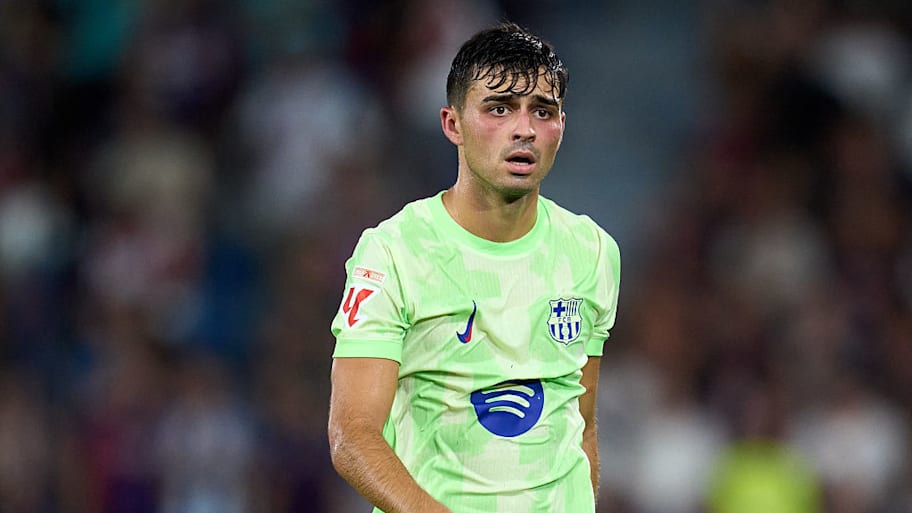
Ultimately, it was PSG’s Champions League triumph, and perhaps Portugal’s UEFA Nations League success in the summer, that helped Vitinha secure a podium finish.
He was absolutely superb, there’s no denying that, but an argument could certainly be made that Pedri was the best-performing midfielder on the planet last season.
A campaign free of major fitness setbacks facilitated so much joy for Pedri lovers, who have been forced to endure an array of rhythm disruptions since his standout Euro 2020 campaign. The Spaniard was then wreaking havoc as more of a playmaker, but we’ve since seen him evolve under Hansi Flick into a midfield operator who can dictate as proficiently as he can create.
Pressing Barcelona is nigh-on impossible when Pedri’s in the side, and he’s proven himself to be more than adept in the defensive phase, too. No one’s suggesting that he should’ve won the award on Monday night, but Pedri’s ranking outside of the top ten wasn’t just for his relentless consistency in a side that ended 2024–25 with three trophies.
"We need to talk more about Pedri," three-time Ballon d’Or Féminin winner Aitana Bonmatí commented after Dembélé’s triumph.
READ THE LATEST ON THE BALLON D'OR 2025—NEWS, NOMINEES AND RANKINGS
This article was originally published on www.si.com as Five Biggest Surprises From 2025 Ballon d’Or Voting.
